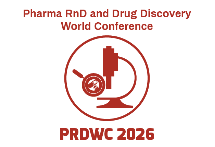Scientific Sessions
Drug Screening
Drug screening and designing are critical steps in drug discovery, where potential compounds are tested to identify their ability to interact with biological targets and treat diseases. Drug screening involves testing large libraries of compounds to identify "hits" that show activity against a target whereas Drug designing modifies the hits identified by changing their chemical structure for better efficacy, safety, and bioavailability. This phase ensures the lead compounds are potent and selective, making them strong candidates for further testing and development.
The Pharma R&D and Drug Discovery World Conference (PRDWC) offers a platform for industry leaders to explore the latest innovations in drug screening and designing and also includes discussions on technologies like high-throughput screening, computational drug design, and the integration of artificial intelligence in drug discovery, aimed at improving the efficiency and precision of identifying and designing effective therapeutic compounds.

